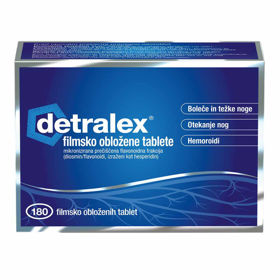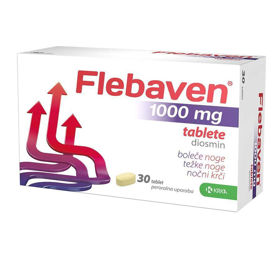Customer Questions:
Can clogged veins be cleaned naturally?
Answer:
Arteries are the largest blood vessels in our body and play a vital role in delivering oxygen and nutrients to every organ, tissue, and cell. This is precisely why the optimal health of the heart muscle and the circulatory system is essential.
But nowadays, a large percentage of people are plagued by problems related to blood vessels. A big problem is a condition called atherosclerosis - an inflammatory condition in which plaque (fatty deposits made up of cholesterol and other substances) builds up on the walls of arteries, obstructing the normal flow of blood through the body's most significant streets and can lead to heart disease, heart attacks, and even brain stroke. According to some estimates, atherosclerosis is the leading cause of 50% of all deaths in Western society and is the leading cause of stroke and Alzheimer's disease.
The excellent news is that diet can greatly reduce the risk of atherosclerosis and even significantly limit the build-up of arterial plaque, and there are other self-help methods.
What can you do yourself?
Fatty fish
Oily fish, including salmon, sardines, anchovies, and mackerel, are good sources of omega-3 fats (polyunsaturated fats), which protect the blood vessels, heart, and brain< /sleep>. Omega-3s can also reduce platelet aggregation (which lowers the risk of blood clots), lower triglycerides, and increase levels of good HDL cholesterol, which helps counteract the plaque-causing effects of unhealthy LDL cholesterol.
Flax seeds
Flaxseeds are also a good source of plant-based omega-3s (alpha-linolenic acid), fiber, and antioxidant plant compounds called lignans. In addition, regular consumption of flax seeds is associated with better regulation of blood fats - therefore, it makes sense to take them, especially for overweight individuals with pre-diabetes.
Berries
Blackberries, blueberries, raspberries, and strawberries have a significant impact when it comes to arterial support therapy. These colorful fruits are enriched with polyphenolic compounds such as quercetin and anthocyanins, which have potent antioxidant effects. Thanks to these compounds (and a good dose of fiber), eating berries have even been linked to improved LDL cholesterol levels, resulting in blood pressure and blood sugar control – all of which help keep arteries healthy and in top shape.
Citrus
Citrus is full of polyphenolic compounds called flavonoids. A study found that eating grapefruit had a beneficial effect on cholesterol and triglyceride levels in people who had just undergone coronary bypass surgery. Citrus fruits with a lower sugar content are best. The only thing to note is that you should NEVER combine grapefruit with medicines.
Extra virgin olive oil
Olive oil is a rich source of unsaturated fatty acids and polyphenolic antioxidant compounds. The polyphenols of extra virgin olive oil affect many health problems and generally have many benefits.
Avocado
Like olive oil, avocado also contains a lot of polyphenols and antioxidant compounds. Avocados are also a surprisingly good source of fiber, with about 6.5 grams per half of an avocado.
Legumes
If you eat a lot of cereal side dishes, you may prefer to replace them with legumes (beans, peas, chickpeas, lentils). These contain a substantial dose of fiber, including soluble fiber, which helps to clean the digestive tract.
Tomato
Tomatoes, especially fresh tomatoes and tomato sauce, are an excellent source of lycopene – the compound responsible for the red color of tomatoes.
Higher levels of lycopene in the blood are non-significantly associated with a lower risk of cardiovascular disease.
Walnuts
Nuts are a good source of protein, fiber, and healthy fats; regular consumption of nuts is associated with a reduced risk of prevalent cardiovascular disease and coronary heart disease. In addition, walnuts contain the highest heart-healthy omega-3 fats of all nuts.
Beetroot
Beets and beetroot juice are one of the best sources of beneficial dietary nitrates, which are converted into nitric oxide (NO) in the bloodstream. NO relaxes blood vessels, which lowers blood pressure.
Spinach
Like beets, spinach and other dark leafy greens are good sources of dietary nitrates, which support flexible, free-flowing blood vessels and arteries by stimulating NO production. In addition to the above, leafy greens contain fiber and a variety of micronutrients, including folate.
Dark chocolate
Dark chocolate is a powerful source of polyphenolic compounds, especially cocoa flavanols. So opt for low-sugar dark chocolate that's 70% cocoa or more (or use unsweetened cocoa powder) and consider pairing it with nuts to keep your blood sugar low.
Spices
Delicious herbs and spices are often beneficial for the heart and circulatory system.
Green tea
The components of green tea have a protective effect on all systems in the body.
Interesting reading: Drops for cleaning veins
Interesting reading: Varicose veins symptoms











